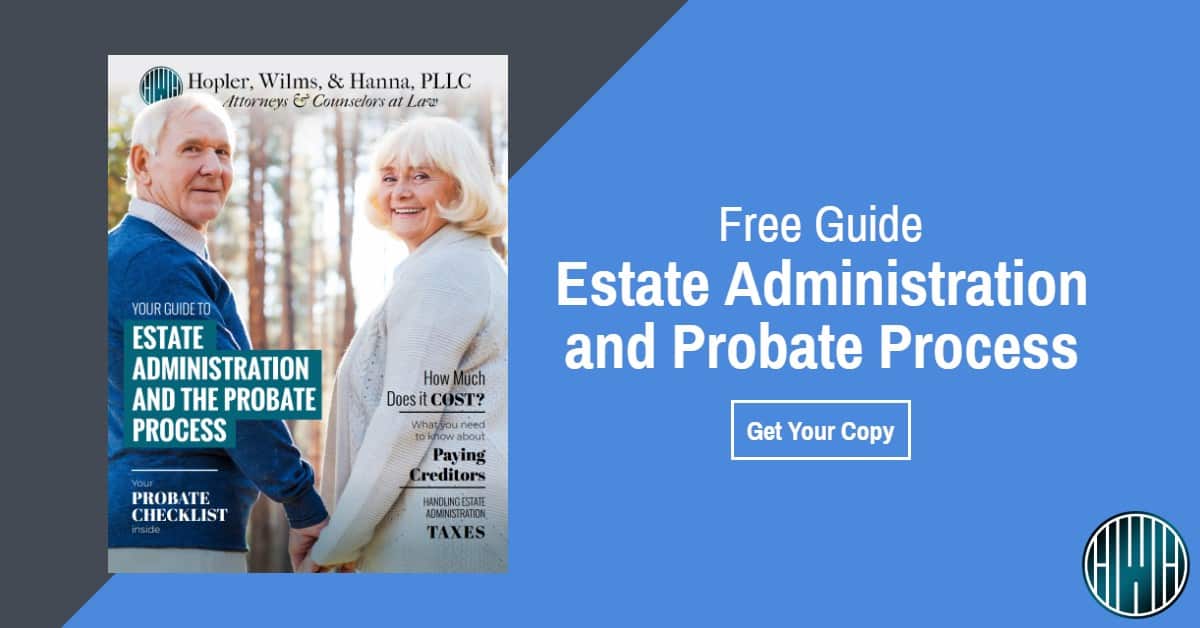Often, a person will die and leave behind real property, such as a home or land. Sometimes, that person will have debts or claims against their estate that cannot be paid unless the property is sold to create funds.
It is important to note, however, that in many cases, estate executors are not automatically allowed to sell the property as part of their role as executor. It is also essential to know that expenses related to real estate are usually not allowed to be paid out of the funds of the estate without Court approval or authority given in the decedent’s will. After the date of death, real estate expenses such as mortgages, insurance, taxes, and utility bills are the responsibility of the heirs.
Getting Permission to Sell Real Property
There are multiple ways in which estate executors can be given permission to sell real property. One of the common ways to be given permission is if the decedent had a will that directed the executor to sell the property without court involvement.
Another way in which to obtain permission to sell the property is by petitioning the court to allow for the sale of the real property in order to create funds to pay debts and claims of the decedent’s estate. This is known as a special proceeding.
Special Proceedings for the Sale of Real Property
There are many components to a petition and proceeding to sell real property. First, a petition must be filed with the Clerk of Court in the county in which the property lies. The petition must contain a description of the property to be sold, the names and contact information of the heirs of the decedent, and a statement from the executor that they have determined selling the property is in the best interest of the estate. Each heir should be served with a summons and a copy of the petition.
If there are unknown or unlocatable heirs, a guardian ad litem (non-interested third party) will have to be appointed to attempt to locate the heirs and represent their interests in the proceeding. A guardian ad litem will also usually have to be appointed if there are minors that are heirs. While it is standard for property to be sold as a whole, there is an option to request a partition of the lands sought to be sold.
Scheduling a Hearing for Petition Approval
After the petition is filed, you will need to get a hearing date from the Clerk. During the hearing, the Clerk will determine whether or not the property should be sold. This is done by reviewing the debts of the estate and comparing them to the assets of the estate. If it is determined that the amount of debts exceeds the number of assets, the Clerk will order the sale of the real property. At this time, the Clerk will determine whether the sale should take place through a private or public sale.
Public sales normally take place at the County Courthouse and are conducted similar to an auction. Private sales allow a realtor to be involved to assist in placing the property on the market. Private sales may be more appropriate, depending on the circumstances. Both public and private sales include a bidding process after the initial offer.
After the hearing, if the Court gives approval, the sale of the property will commence. After the sale, a report and confirmation of the sale may need to be filed with the Court. Any funds that result from the sale of the property will first need to be used to pay any existing mortgages on the property. Then, the remainder is used to pay debts of the estate. Any funds left over after payment of all debts can be distributed to beneficiaries.
While some people may want to attempt the process of petitioning the Court on their own, it is strongly advised to retain an estate attorney to assist in the matter. Proceedings of this nature can be very complex, and obtaining legal assistance can save valuable time and headaches. Hopler, Wilms, & Hanna, PLLC, have experienced estate attorneys that will guide you through every part of the process. Contact us for a consultation.


